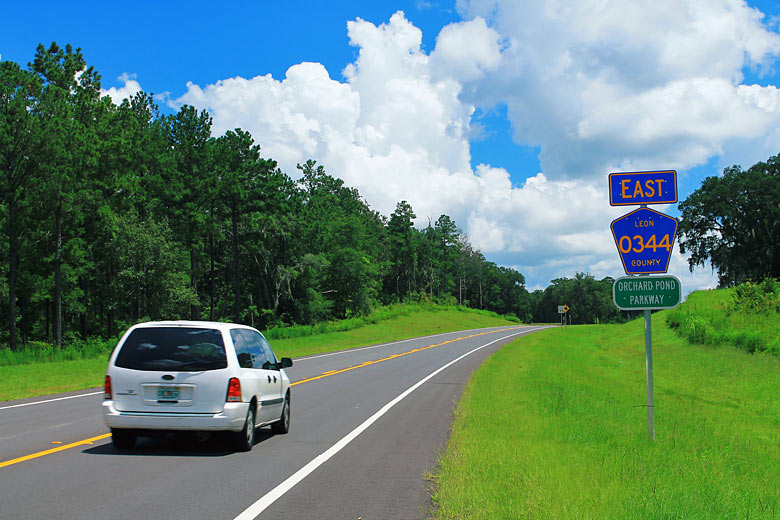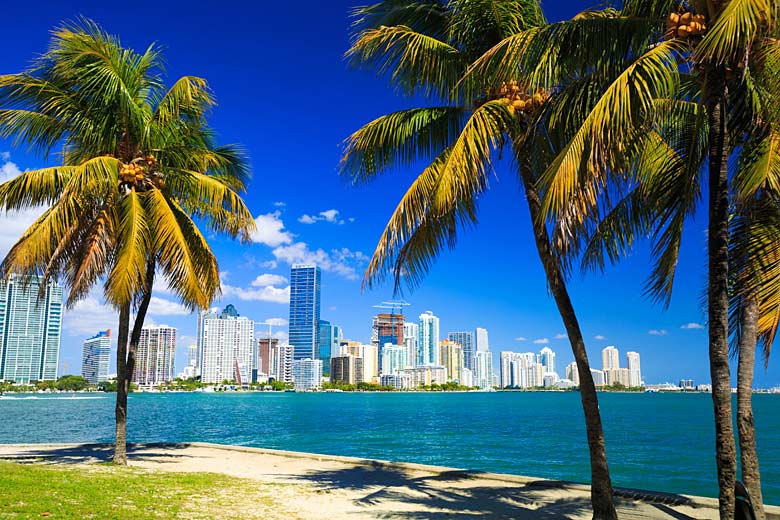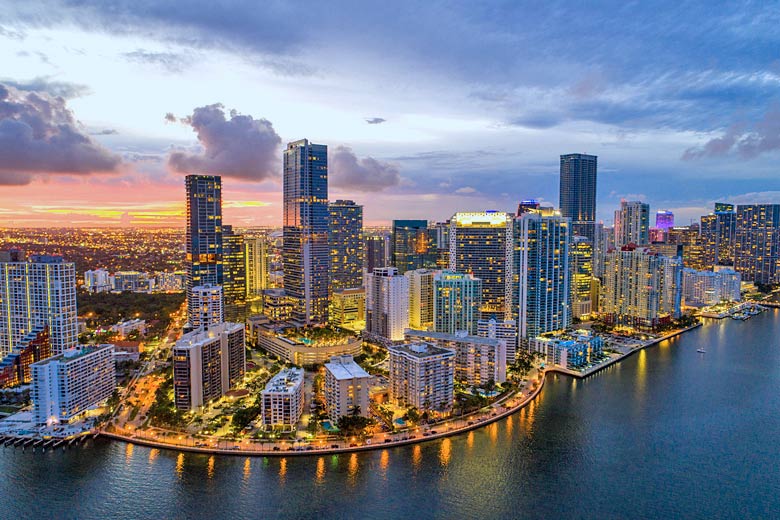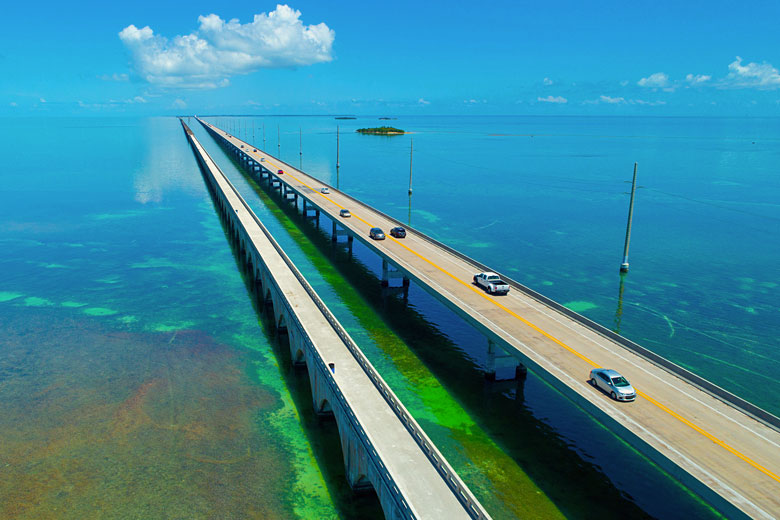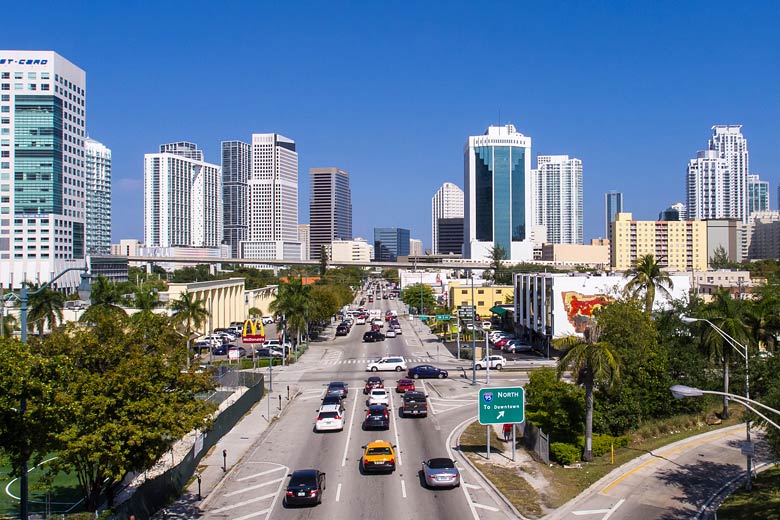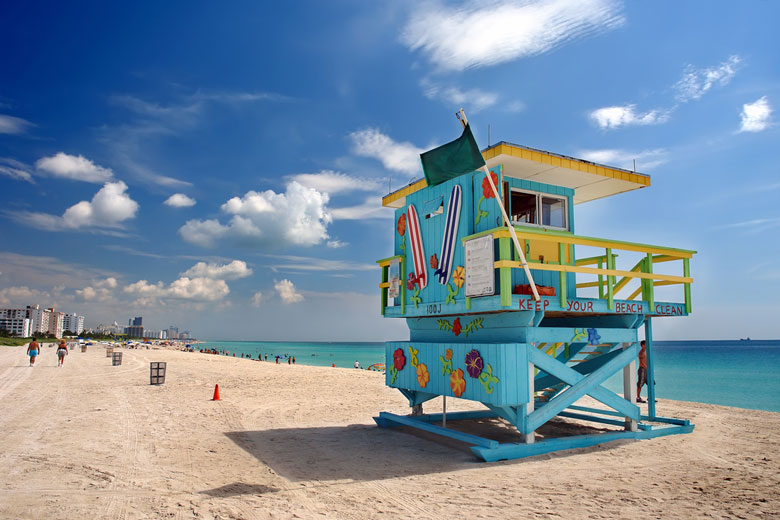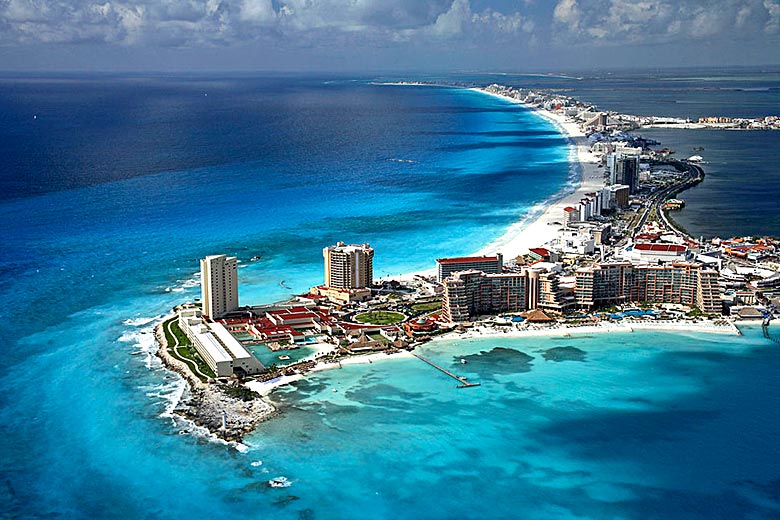- Book online with TUI & save up to 7% on holidays
- FREE child places available for select holidays
- Pay £0 deposits with direct debit & spread the cost
Best time to visit Florida
Renowned as the 'Sunshine State' Florida is on most people's list of favourite holiday destinations. Whether you are planning to head for the beach, explore the world's largest theme parks or tour the state, Florida weather is unlikely to disappoint. Sunshine and warmth are on tap most of the year.
- Best time to visit
- Weather by month
- 5-day weather forecast
- Destinations
- Travel advice
- Deals & discounts
Florida by month
Jan Feb Mar Apr May Jun Jul Aug Sep Oct Nov Dec
Recommended for Florida
Top Florida destinations
Below are the temperatures expected today at popular countries, regions and places in Florida. Select a destination to compare today's forecast with average weather conditions.
- Orlando
- Tampa
- Fort Lauderdale
- Key West
- Miami
- St Pete Beach
- Daytona Beach
- Clearwater
- Tallahassee
- Panama City
All Florida destinations
- Amelia Island
- Bradenton
- Cape Canaveral
- Cape Coral
- Captiva
- Clearwater
- Cocoa Beach
- Crystal River
- Davenport
- Daytona Beach
- Disney World
- Duck Key
- Fernandina Beach
- Fort Lauderdale
- Fort Myers
- Fort Myers Beach
- Fort Walton Beach
- Gainesville
- Indian Rocks
- International Drive
- Jacksonville
- Key Largo
- Key West
- Kissimmee
- Lake Buena Vista
- Madeira Beach
- Marco Island
- Miami
- Miami Beach
- Naples
- Orlando
- Palm Beach
- Panama City
- Pensacola
- Port-Saint-Joe
- Redington Beach
- Sanibel Island
- Santa Rosa Beach
- Sarasota
- Sea World
- South Beach
- St Augustine
- St Pete Beach
- St Petersburg
- Sunny Isles
- Tallahassee
- Tampa
- Treasure Island
- Universal Studios
- Vero Beach
When is the best time to visit Florida?
Max Day Temperature (°F)
- Jan
 75
75 - Feb
 75
75 - Mar
 77
77 - Apr
 81
81 - May
 84
84 - Jun
 86
86 - Jul
 88
88 - Aug
 88
88 - Sep
 88
88 - Oct
 84
84 - Nov
 81
81 - Dec
 75
75
Best time to visit
The weather guide for Florida (Miami) shows long term weather averages processed from data supplied by CRU (University of East Anglia) & today's weather forecast provided by meteoblue. Find out more about our data sources.
Metric (°C) | Imperial (°F)
Florida's weather - an overview
Florida weather is hot and humid in summer with fairly high rainfall but also with plenty of sunshine. In winter it is cooler and drier but never gets particularly cold except possibly in the very far north.
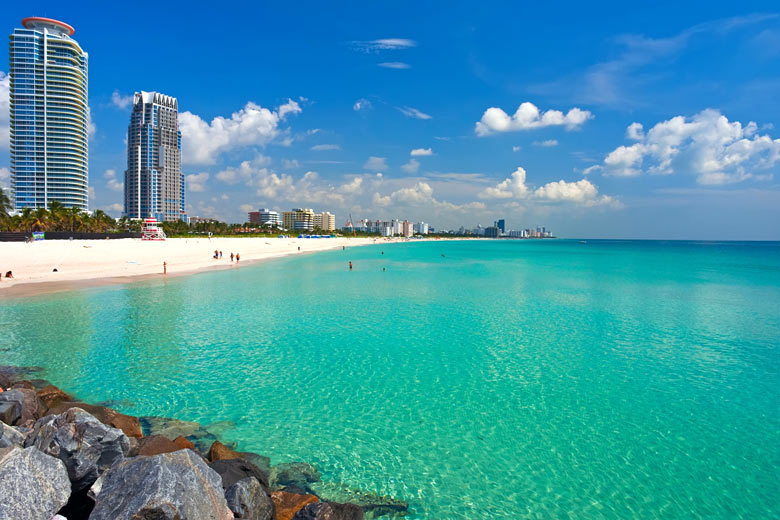
Although the summer is always the season with most rain, there is rainfall in all months almost everywhere.
However south of a line drawn from Fort Myers to Palm Beach weather conditions become more like the Caribbean with a clearly defined winter dry season from December to April. In Miami for example in April there are usually only 5 days with some rain.
Throughout the state summers are hot with daytime temperatures rising into the 30s Celsius from June to September. Interestingly summer days in the north can be hotter than they are in the south but summer nights in the north are a few degrees cooler.
Heat and humidity is also very high everywhere in summer during the day, but afternoon thunderstorms usually cool the air towards the end of the day so heat and humidity does not persist into the night. Florida has the highest number of thunderstorms per year of any US state.
Most rainfall also occurs at the height of summer between June and September with over 200mm of rain a month in some places. But despite the large number of days with rain there is still also a lot of sunshine - at least 8 hours a day on average everywhere.
Areas in the north-west and south-east receive most rainfall in the year, while rainfall is lowest in the far south-west and along the Florida Keys.
Hurricanes and other less serious tropical storms can strike Florida any time in the summer up to the end of November, however the risk is greatest between August and October.
Tropical storm risk: Miami, Florida hurricane season
The Miami, Florida tropical storm risk chart above shows the hurricane season. The chart was processed from data supplied by the US Meteorological Agency (NOAA). Find out more about our data sources.
Hurricanes can pose a serious threat to life and property but on average less than four storms a year affect Florida and generally all they bring is cloud, high winds, rough seas and a lot of rain.
At the end of October the weather starts to get cooler and drier throughout the state and by the middle of December heat and humidity ceases to be a problem.
Between December and February ground frost can occur in the north of the state and on very rare occasions snow has even been seen. Despite this winters in Florida are generally very pleasant.
Even in Orlando, which is 400 kilometres north of the Florida Keys, daytime temperatures usually rise above 20°C most days during winter and will only fall below 10°C at night in January and February.
In coastal areas especially on the east coast winters are particularly mild. This is partly due to a fairly constant easterly wind that blows over the warm Atlantic Ocean to the east of Florida, and to the warm Gulf Stream current flowing up the east coast.
In Palm Beach, even in February the coldest month, the sea temperature does not usually drop below 24°C. However winter is also the jellyfish season so take advice before jumping in.
The best time to visit Florida is probably in March and April when it is warm and sunny; usually in these months over 75% of daylight hours are sun-filled, and temperatures range from the high teens Celsius at night to the high twenties during the day.
Heat and Humidity is generally low to moderate and in the south the sea is warm enough for swimming. From May onwards Florida weather begins to get hot again.
What to pack for Florida weather
In Florida you can get away with light clothing for most of the year, while some sort of protection from the rain is essential in summer.
Unless you are only visiting the south of the state in winter you will need an extra layer for evenings.
Which is the hottest month in Florida?
The hottest time of year in Miami, Florida is normally August. Expect maximum daytime temperatures to reach 88°F with very high heat and humidity.
Which month has the most rain in Florida?
In terms of rainfall, June is usually the wettest month in Miami, Florida with 7.9 inches on average. There are normally 16 days in June with some rain.
When is it sunniest in Florida?
The sunniest time of year in Miami, Florida is normally April with bright sunshine on average for 76% of daylight hours; that's 10 hours of sunshine per day.
When is the sea warmest in Florida?
The sea is usually at its warmest in Miami, Florida in August when the water temperature reaches 86°F.
Florida travel features
Do you want to learn more about Florida? Read our latest features covering travel tips and insider destination guides on where to go and what to do in Florida.
Be inspired
Get your weekly fix of holiday inspiration from some of the world's best travel writers plus save on your next trip with the latest exclusive offers
We promise not to share your details
Related posts
Popular travel offers
Explore holidays in the sun for less
- Beach holidays
- Family holidays
- City breaks
- Summer holidays
- Winter sun holidays
- Holiday offers
- Top travel brands
- Airlines & flights
- Discount hotels
- Airport parking deals
- TUI
- Jet2holidays
- easyJet holidays
- Love Holidays
- British Airways
Airport parking
- Manchester Airport
- Stansted Airport
- Bristol Airport
- Luton Airport
- Birmingham Airport
- Edinburgh Airport
- Gatwick Airport
- Glasgow Airport
- Newcastle Airport
Airport lounges
- Manchester Airport
- Birmingham Airport
- Bristol Airport
- Edinburgh Airport
- Glasgow Airport
- Heathrow Airport
- Newcastle Airport
- Stansted Airport
- Gatwick Airport











 TUI deal finder
TUI deal finder




